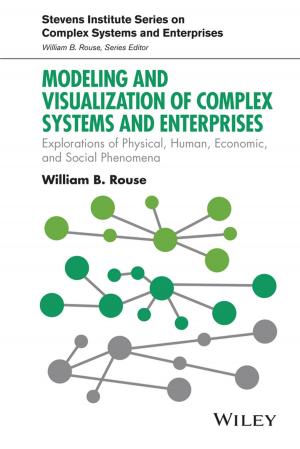| Author: | Mark Wheeler | ISBN: | 9780745671703 |
| Publisher: | Wiley | Publication: | August 22, 2013 |
| Imprint: | Polity | Language: | English |
| Author: | Mark Wheeler |
| ISBN: | 9780745671703 |
| Publisher: | Wiley |
| Publication: | August 22, 2013 |
| Imprint: | Polity |
| Language: | English |
In this new book, Mark Wheeler offers the first in-depth analysis of the history, nature and global reach of celebrity politics today.
Celebrity politicians and politicized celebrities have had a profound impact upon the practice of politics and the way in which it is now communicated. New forms of political participation have emerged as a result and the political classes have increasingly absorbed the values of celebrity into their own PR strategies. Celebrity activists, endorsers, humanitarians and diplomats also play a part in reconfiguring politics for a more fragmented and image-conscious public arena.
In academic circles, celebrity may be viewed as a ‘manufactured product’; one fabricated by media exposure so that celebrity activists are no more than ‘bards of the powerful.’ Mark Wheeler, however, provides a more nuanced critique contending that both celebrity politicians and politicized stars should be defined by their ‘affective capacity’ to operate within the public sphere. This timely book will be a valuable resource for students of media and communication studies and political science as well as general readers keen to understand the nature and reach of contemporary celebrity culture.
In this new book, Mark Wheeler offers the first in-depth analysis of the history, nature and global reach of celebrity politics today.
Celebrity politicians and politicized celebrities have had a profound impact upon the practice of politics and the way in which it is now communicated. New forms of political participation have emerged as a result and the political classes have increasingly absorbed the values of celebrity into their own PR strategies. Celebrity activists, endorsers, humanitarians and diplomats also play a part in reconfiguring politics for a more fragmented and image-conscious public arena.
In academic circles, celebrity may be viewed as a ‘manufactured product’; one fabricated by media exposure so that celebrity activists are no more than ‘bards of the powerful.’ Mark Wheeler, however, provides a more nuanced critique contending that both celebrity politicians and politicized stars should be defined by their ‘affective capacity’ to operate within the public sphere. This timely book will be a valuable resource for students of media and communication studies and political science as well as general readers keen to understand the nature and reach of contemporary celebrity culture.















